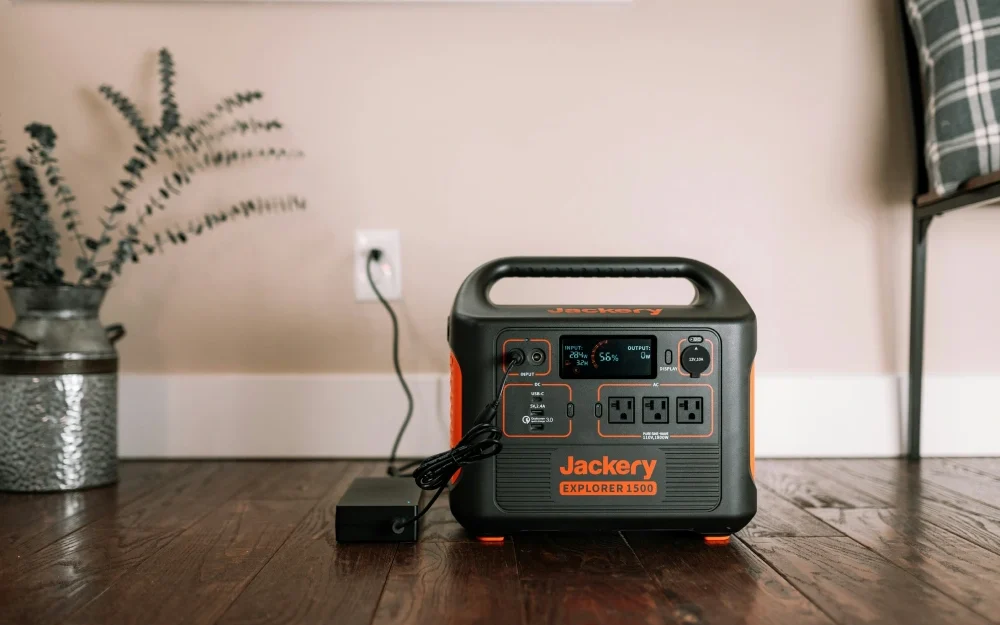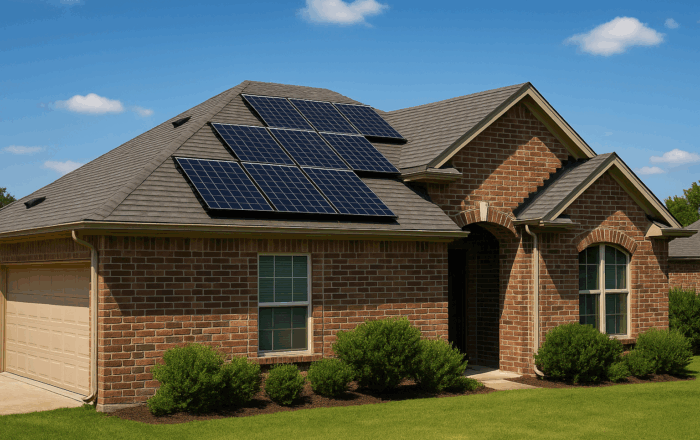Home Improvement Living in Texas
How Many Solar Panels Do You Need in Texas?
4 minute readHow to calculate the number of solar panels you need to power your Texas home
Home > BKV Energy Blog > All Posts > The Best Home Generators for Power Outages
Explore the different types of generators to help you make an informed choice
4 minute read • Last update January 2025

The state of Texas experiences lots of power outages. Sometimes, blackouts last for just a few minutes; other times, outages caused by storms can last for hours or days. That’s why many Texans have generators to power their homes during power outages.
Looking to invest in backup power but not sure which is the best emergency home generator for you? In this guide, we’ll explore the most efficient electric generators to help you make an informed choice.
Research shows Texas ranks 2nd in the country for power outages, making emergency power a higher priority for residents in the Lone Star State. For this reason, it is essential Texans prepare in advance for power outages. But with so many options, how do you choose the best house generator for your needs? Let’s delve into the specifics of each type.
For those seeking a flexible solution to uninterrupted power, portable home generators can be a game-changer. While some are light enough to be handheld, most have wheels, meaning they can supply electricity for both indoor (never operate a gas, diesel, propane, or natural gas-powered generator indoors) and outdoor use. The average purchase cost is typically from $500–$2,500+.
Gasoline models are among the most efficient generators and are often a go-to choice due to their widespread availability and ease of use. They can effectively supply power for a range of purposes, from running essential home appliances like stoves and refrigerators to providing energy for outdoor needs.
One of the most fuel-efficient generator options, portables running on diesel fuel are durable and robust—even during an extended power outage. Their ability to handle prolonged usage ensures a continuous and reliable source of power for your home essentials until regular service resumes.
Propane generators for power outages provide a cleaner-burning alternative with lower emissions compared to gasoline and diesel models, making them an excellent choice for those looking for more environmentally friendly options. Additionally, many homeowners prefer them for their reliability due to the extended shelf life of the propane fuel.
Natural gas is cleaner and less expensive than most other fuels, produces fewer greenhouse gasses (like sulfur, nitrogen, and carbon dioxide), and is odor-free. As one of the most effective fuels, natural gas generators are particularly beneficial for ensuring seamless and uninterrupted power output for homes with an existing natural gas connection.
Inverters are a unique type of electric home generator due to the way they convert direct current (DC) power produced by the engine into alternating current (AC) power. This advanced technology delivers stable power for sensitive electronics like computers, laptops, and mobile phones. Plus, they are quieter and more fuel-efficient than gasoline and diesel models.
Standby generators for power outages operate using an automatic transfer switch, so you don’t even need to think about turning them on. When the power goes out, the transfer switch senses the loss and transfers the electrical load directly to the generator. So, in addition to ensuring an uninterrupted supply of electricity, standby systems also reduce the need for multiple extension cords.
Standby models are available in varying sizes, so the right generator for you will depend on how much power you need based on the size of your home. Prices typically range from $10,000-$20,000.
One of the most efficient gas generator options on the market, natural gas solutions prioritize convenience and low generator exhaust emissions. They produce enough electrical current to charge batteries, power appliances, and even run large pieces of equipment.
For those without an existing natural gas connection, propane is a logical alternative for households seeking a clean-burning fuel with low carbon dioxide and carbon monoxide emissions. Plus, the almost infinite shelf life of propane makes it a logical choice for long-term use.
While not the most environmentally friendly option, diesel remains one of the most popular types of generator for homes across the state. They are efficient enough on fuel to provide a robust and practical short-term power solution, although they typically have slightly higher maintenance requirements than other models.
Fixed and portable solar generators harness renewable energy, providing sustainable power alternatives for homeowners seeking an eco-friendly approach.
The average price of installing solar is usually between $18,000 to $36,000. However, as solar can increase the listing price of your home, the investment could be worth it. Plus, solar panels have no moving parts, so maintenance costs are minimal. Let’s break down the components in more detail.
Photovoltaic solar generators, commonly known as solar panels, convert sunlight into electricity. They can be mounted either on rooftops or in open spaces. As a silent and low-maintenance solution, photovoltaic solar generators are ideal for reducing reliance on traditional power sources and minimizing your environmental footprint.
Battery storage systems complement solar panels by storing the excess energy generated during sunny periods for utilization during power outages. So, you’ll always have a constant source of electricity — even when the grid is down.
Biomass energy harnesses renewable organic matter to generate power, providing an eco-friendly alternative to traditional power sources. There are two primary types of biomass generators, both with retail price tags starting at a few thousand dollars.
Biomass gasification is a two-stage combustion process as it requires the anoxic (oxygen-deprived) combustion of the original biomass fuel, which then produces combustible gas to facilitate electricity generation.
Biomass combustion generators burn organic materials directly to produce heat, which can then be converted into electricity. This one-stage combustion process is known as direct combustion.
Before making a purchase, ask yourself the following questions to ensure you make the best choice by balancing power requirements, safety factors, budget considerations, and more:
At BKVE, we understand that electricity is an essential service, which is why we’re dedicated to offering the most simple and affordable plans in Texas. Our number one goal is to help Texas homeowners and renters save money on electricity.
Enter your zip code to learn more and find the right plan for your household.
Graham Lumley, Digital Marketing Manager at BKV Energy, leads digital and traditional marketing strategies, focusing on educating Texans about the state's deregulated energy market. With over 8 years of marketing experience, he creates content to help consumers understand and save on their energy bills, bringing a fresh and dynamic approach to the industry.

Home Improvement Living in Texas
How to calculate the number of solar panels you need to power your Texas home

Gardening in Texas presents unique challenges. Long, hot summers and frequent droughts mean that traditional landscaping often requires significant water
Get $50 off your electric bill!
Use code BKVEJOINUS50
Enter your zip code to shop BKV Energy's affordable, fixed-rate Texas electricity plans. Use the promo code for $50 off your electric bill.